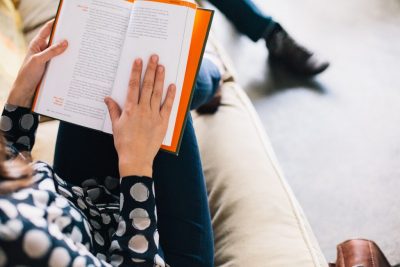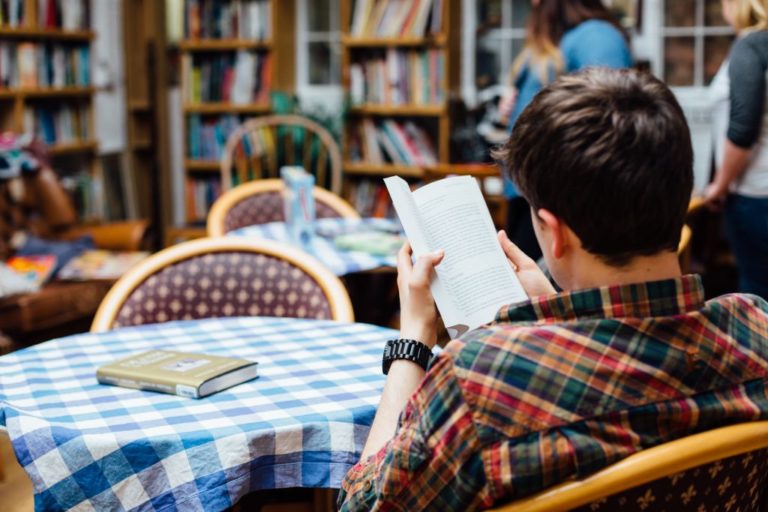
Reading comprehension is an important skill, starting early in elementary school.
In order to show good reading comprehension skills, a person is asked to read, understand, and answer questions about what they’ve read. Children with ADHD or other learning disabilities, such as Dyslexia, can struggle with reading comprehension. In these circumstances, instructional strategies can help.
Below are several instructional strategies that parents can use with their children.
It is best to just start with one or two strategies, try them for awhile, and practice them together. If a strategy helps, stay with it. If it doesn’t, try another one. Over time, your efforts will likely help. Parents and students can practice these strategies with with written text, but also with audiobooks, if this is more enticing to your child.

| Strategy: | Description of the Strategy: | Prompts: |
| Visualizing | When readers think about sight, sounds, taste, touch, and smell as they are reading, to help them develop a mental picture of what is happening in the story. | *When I read this part, I can picture what the author is describing. I see ___ in my head. It sounds like ___ and I can smell the ___.
*Close your eyes when I read this and pay attention to the picture that comes to your mind. |
| Making Connections | When readers are reminded of their own background experiences and knowledge and use this information to help them understand what they have read. | *This reminds me of ___ because ___.
*I think I already know what is going to happen because ___. |
| Predicting | When readers use the connections they have already made, as well as their ongoing summary of what they have read, to help them make an educated statement of what they think will happen next in the story. Readers can also predict when reading a non-fiction text, by using what they know about text structure and features such as headings. | *I think ___ will happen next because ___.
*I think I will learn about ___ next because ___. |
| Questioning | When readers create a dialogue with the text and think critically, giving them a purpose for reading, as they need to read to find the answer to their questions. | *Who ___? What ___? Where ___? When ___? Why ___? How ___?
*Why do you think ___? *What if ___? |
| Inferring | When readers use their prior knowledge and textual clues to draw conclusions and make unique interpretations that go beyond what is actually written in the text. | *I think ___ because ___.
*I can tell that ___ because ___ (Something not directly stated in the text). *The book tells me this ___, but I know ___, so I think ___. |
| Clarifying | When readers keep track of their understanding as they read and fix any problems they encounter along the way (problems involving not understanding the meaning of an individual word or problems with not comprehending a particular section they have read). | *I didn’t understand that word. I am going to reread the sentence and use what I already know to help me figure out what it means.
*I didn’t get that part so I am going to reread that section again. |
| Summarizing | When readers determine what is important amidst all that they have read – For fiction, they focus on the main idea(s) and the sequence of events, rather than unimportant details. For non-fiction, they determine which facts are important to remember. | *This story is ___. First, ___. Next, ___. Then, ___. Finally, ___.
*The most important facts I learned from this article are ___. |
| Synthesizing | Readers think about what they have read and react to it, by using their personal experiences and background knowledge, allowing their thinking to continually evolve as new information from the text combines with their current thinking. | *At first, I thought ___, but now I think ___.
*Oh! This changes everything from what I thought before because ___. |
| Evaluating | When readers judge the text, the author’s craft, the actions of the characters, and/or controversial issues or ideas in the reading. | *I rate ___ because ___.
*I agree/disagree with ___ because ___. |
![]()
